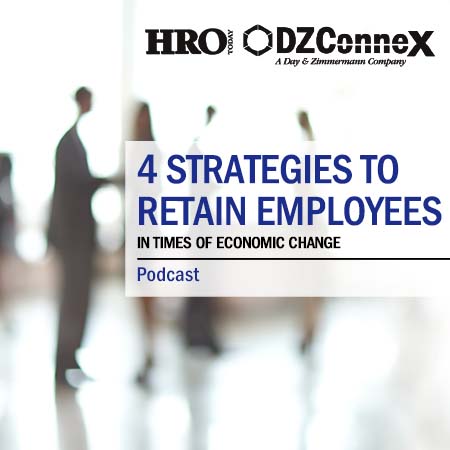Anyone who has had a glimpse into the world of talent acquisition over the past several years knows how many changes it has endured which forced companies to be more agile than ever before. While these changes have lead to immense challenges for talent acquisition professionals and pushed them to stray from their normal strategies, the new ideas that have been brought to the TA table can be seen as a positive outcome.
One strategy that has been rising in popularity recently is upskilling, which is crucial for the retention of top performers, and retaining top performers is more important than ever to remain competitive amid an inconsistent hiring environment. Upskilling is defined as the process by which workers build on their existing skills through development opportunities and training programs. Upskilling provides a way to internally close skill or talent gaps within a company. And while upskilling gives both employees and employers an advantage under any circumstance, it’s particularly advantageous in today’s rapidly changing work environment.
Let’s take a deeper dive into upskilling to establish how you can provide these opportunities for your teams and how promoting upskilling throughout your workforce will benefit your organization.
How to Provide Upskilling Opportunities for Your Team
In order for upskilling to work, an employee must be a self-advocate for the change, and they need to be backed with managerial support, too. And once both parties are on board, it’s time to identify the skills gaps within your organization. This first step is crucial for upskilling efforts to have a meaningful impact on the organization overall.
Next, you should create a customized learning plan for each individual. This might include sending them to workshops and conferences that are geared toward the skills they are striving to learn, or it could include investing in online training courses to get them certified in a certain skill. For example, if a software engineer wants to take courses to become certified to use a newly released software, you should enable them with the technological resources to obtain this certification.
It's also wise to provide mentorship for an employee who is learning a new skill. Having a mentorship program available for your employees throughout their upskilling journey will ensure that they remain motivated and have a knowledgeable individual to turn to if they need guidance or support.
Be sure to identify clear paths and milestones for performance measurement. This will ensure that both parties' goals are aligned, everyone stays on track, and the investments companies are making in upskilling are paying off. And lastly, reward your employees for their dedication and drive.
Benefits of Upskilling
Now why should you take the time to incorporate upskilling into your organization? Here’s why it’s worth the investment:
Benefits for Organizations
- Improved Productivity
If you provide your employees with upskilling opportunities, you will have a more skilled workforce on your hands. And with more skill comes more productivity. Also, employees will be more eager to perform well and give more effort to an organization that invests in their development, so increased productivity will be an inevitable outcome of upskilling your workforce.
- Business Agility
Remaining agile in today’s unpredictable market is essential for any business’ survival. One way to do this is through upskilling. You should consistently monitor which skills will become relevant in your industry in the future so that your employees can adopt these new skills ahead of time. As market conditions, technologies, and business needs evolve, in-demand skills will do the same, so don’t risk falling behind your competitors. - Increased Retention Rates
When employees are encouraged to seize upskilling opportunities, people metrics such as employee engagement and retention will increase. Most people strive to grow personally and professionally, so when an employer supports that development, it improves loyalty and prevents turnover. - Time and Money Saved
The talent acquisition process requires many resources to be completed successfully. Upskilling your existing workforce, however, saves you the significant amount of time and money required to hire a new employee to fill a skill gap.
Benefits for Employees
If you’re an employee reading this and contemplating why you should spend your time learning a new skill for your job, here are some of the leading reasons:
- Career Advancement
Most people strive to advance in their career, and upskilling is a guaranteed way to do that. It sets people up to eventually be promoted as they prove they can accomplish more with their recently developed skills. - Job Security
In order to remain competitive as an employee, you need to show an interest in enhancing your skills and continuously learning. Be proactive and adaptable to stay relevant and ensure your organization recognizes your value so you can maintain a secure position there. - Higher Pay
When you attain new skills, you will have a solid case for why your compensation should increase. The more you know, the more you can contribute to your company, so you should be paid more for this increased output. - Confidence Booster
Upskilling can be an empowering experience. If you are feeling like you aren’t growing much in your role, then learn something new and your confidence in your professional abilities will be elevated.
To wrap things up, remember that upskilling is important to keep up with emerging technology, evolve with ever-changing business needs, stand out from the competition, and avoid unnecessary external hires. If your company has not embraced this initiative yet, it's time to take action and help your workforce reach new milestones.







